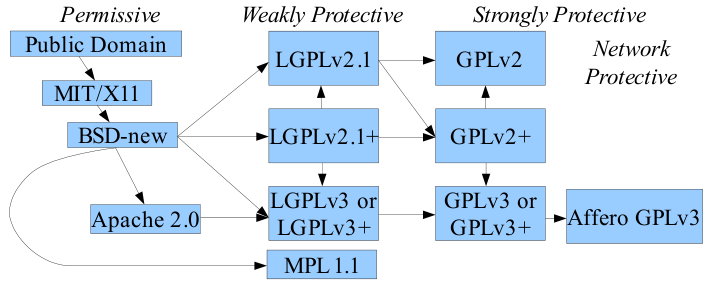Ok. So, what do you think about viral copyleft licenses, such as GPL or LGPL?
My opinion is, that I don't like them. Currently I'd like it if all interesting software that is licensed with those licenses could be re-licensed or rewritten with a real free license, like BSD, MIT, zlib or WTFPL. The freer, the better
Right now I would want a real free alternative for, for example, the libavcodec library (and maybe some other software, too). Could I maybe email the copyright holders of (L)GPL stuff and ask them to re-license the stuff and join/fork a new, genuinely free project.
My opinion is, that I don't like them. Currently I'd like it if all interesting software that is licensed with those licenses could be re-licensed or rewritten with a real free license, like BSD, MIT, zlib or WTFPL. The freer, the better
Right now I would want a real free alternative for, for example, the libavcodec library (and maybe some other software, too). Could I maybe email the copyright holders of (L)GPL stuff and ask them to re-license the stuff and join/fork a new, genuinely free project.


